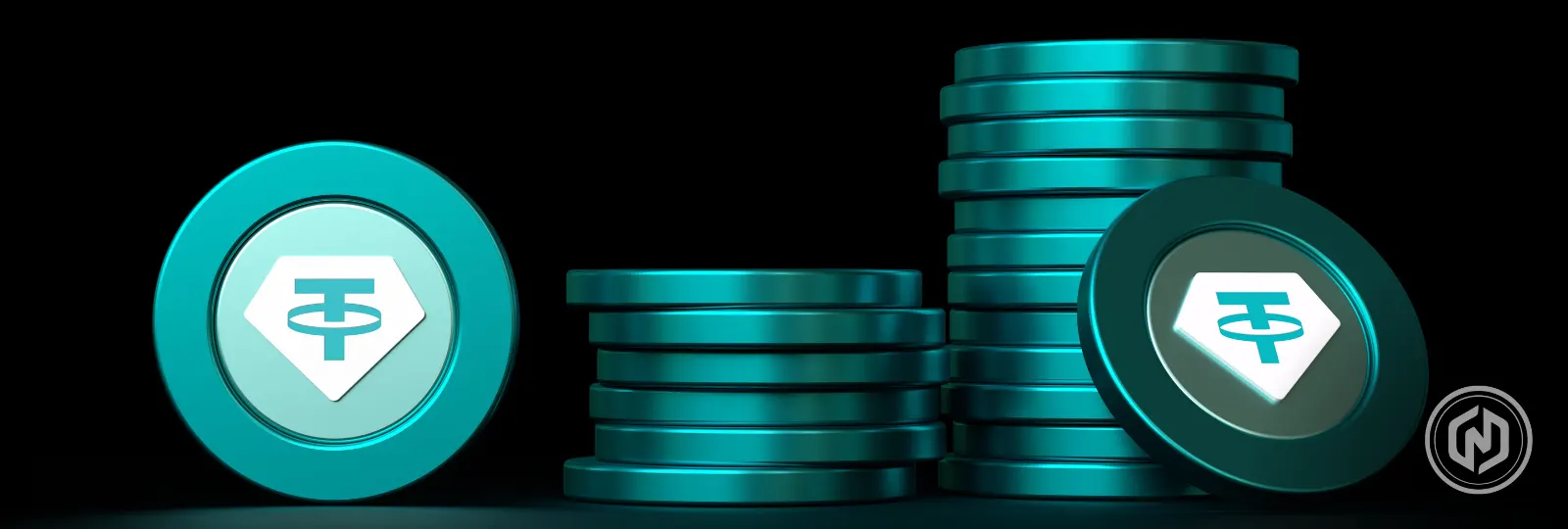In the quest to create artificial intelligence that rivals human ingenuity, the importance of high-quality training data cannot be overstated. Yet, the vast majority of AI research and development is dominated by a select few, who possess the resources and infrastructure to collect, process, and leverage vast amounts of data.
However, a new era of innovation is dawning, one that promises to democratize access to AI and empower a global community of researchers, developers, and entrepreneurs to build the future. At the forefront of this revolution is Tether’s QVAC division, which has just unveiled QVAC Genesis I, the largest and most advanced synthetic dataset ever created for AI training, boasting an unprecedented 41 billion tokens.
Tether’s QVAC Unveils Synthetic Dataset
According to Tether’s latest official post, the stablecoin giant’s artificial intelligence (AI) research arm has launched QVAC Genesis I, a massive synthetic dataset with 41 billion text tokens. This project is created to enhance the reasoning and precision of STEM-focused language models. The dataset has demonstrated strong performance in mathematics, physics, biology, and medicine, according to an email on Friday.
“Intelligence shouldn’t be centralized,” stated Tether CEO Paolo Ardoino. He added,
“With QVAC Workbench and Genesis I, we’re opening the door to infinite intelligence, AI that lives, learns, and evolves locally on your own device. We believe that intelligence, like information, should be free, accessible, and owned by everyone, not locked behind corporate firewalls or sold as a service. Whether it’s a phone, a robot, or a wearable, intelligence should belong to the individual, not the institution.”
He highlighted the significance of restoring balance and bringing intelligence to the edge, where it belongs to individuals, ensuring universal freedom to build and learn. His words read, “QVAC Genesis I represents a future where people, not platforms, control how knowledge is created, shared, and used. It’s about restoring balance, bringing intelligence back to the edge, where it belongs, and ensuring the freedom to build and learn is universal.”
QVAC Workbench
In addition to this strategic development, Tether also launched QVAC Workbench, a local AI application that allows users to run, train, and interact with models directly on their devices, while maintaining data privacy. The app supports popular open models like Llama, Medgemma, Qwen, and Whisper, giving users full control over their data.
The application is now available on multiple platforms, including Android smartphones and desktop operating systems like Windows, macOS, and Linux. It ensures 100% data privacy, with all AI interactions and chats remaining local on the users device. A standout feature, “Delegated Inference,” allows seamless peer-to-peer connection between mobile and desktop apps, enabling users to tap into the processing power of their workstations for enhanced performance.
Why QVAC Genesis I?
With the launch, Tether intends to invite researchers to develop models that can rival and potentially outperform proprietary systems. The dataset was created through a rigorous multi-stage process, transforming high-quality scientific and educational materials into structured learning data. This resource enables models to reason, solve problems, and think critically, rather than just mimic language. Ardoino added,
“Most AI today sounds smart, but doesn’t truly think. We designed this dataset to help models understand cause and effect, to make connections, draw conclusions, and reason their way through complexity. And we’re making it open to everyone.”


